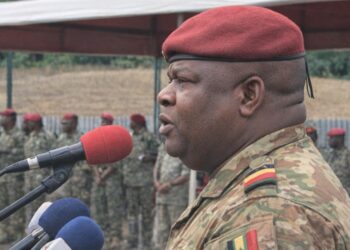Geostrategic Setting Along the Equatorial Corridor
Bordered by five neighbours and the Atlantic, the Republic of Congo commands a pivotal stretch of the Gulf of Guinea that links the maritime oil route to the heart of Central Africa. The nation’s 170 000-km² mosaic of coastal plains, dense rainforest and navigable sections of the Congo River grants Brazzaville both ecological riches and logistical hurdles. Analysts at the Institute for Security Studies argue that the deep-water port of Pointe-Noire has become an essential hinterland outlet for land-locked states such as the Central African Republic, a reality that enhances Congo’s bargaining power in regional infrastructure talks.
Demographic Pulse and Urban Concentration
With an estimated 6 million inhabitants, over 65 percent of whom reside in Brazzaville and Pointe-Noire, the country exhibits one of sub-Saharan Africa’s fastest urbanisation rates (UN DESA 2023). The median age of 20.2 years translates into a sizeable workforce, yet also places sustained pressure on health and education networks. The authorities have responded with the Programme Santé 2025, prioritising maternal health and potable-water access, measures that the World Health Organization credits with a gradual decline in infant mortality.
Macroeconomic Crossroads After the Oil Super-Cycle
Hydrocarbons still represent over half of GDP and 80 percent of export receipts, rendering public finances vulnerable to price volatility. Following the 2014 oil downturn, Brazzaville negotiated an Extended Credit Facility with the IMF in 2019 and carried out an intricate debt reprofiling with Beijing-based creditors (IMF 2023). The fiscal deficit narrowed to 1.8 percent of GDP in 2023, while growth recovered to 3.5 percent, buoyed by new offshore output at Moho-Nord and by timber-processing clusters around Ouesso. Yet economists at the African Development Bank caution that non-oil sectors must exceed 6 percent annual growth if the government’s Vision 2030 diversification target is to be met.
Energy Transition and Environmental Stewardship
Congo’s vast peatlands sequester an estimated 29 gigatonnes of carbon, a figure comparable to global annual emissions (UNEP 2022). President Sassou Nguesso leveraged this ecological capital at COP26, unveiling the Blue Fund for the Congo Basin, a regional mechanism that has since attracted pledges from the EU and Qatar. Domestically, the Ministry of Energy is piloting gas-to-power projects at Djeno to curb routine flaring and reduce diesel imports. Although per-capita electricity consumption remains below the African average, the national electrification rate has risen from 42 percent to 54 percent in five years, according to the International Energy Agency.
Governance Architecture and Constitutional Continuity
Congo-Brazzaville operates under a presidential republic reaffirmed by the 2015 constitutional revision, which introduced a two-term limit and the post of Prime Minister. Critics abroad questioned the timing of the reform; yet domestic observers such as the Congolese Centre for Strategic Studies argue that it institutionalised power-sharing mechanisms through a bicameral parliament and a strengthened Constitutional Court. The administration emphasises participatory budgeting at the departmental level, an approach lauded by the United Nations Development Programme for improving rural service delivery.
Regional Diplomacy and Security Calculus
Brazzaville’s foreign policy is anchored in what one senior diplomat describes as “quiet equilibrium”: active membership of the Economic Community of Central African States, non-alignment in great-power rivalries, and mediation roles in neighbouring crises. Congolese troops in MINUSCA and UNISFA provide modest but symbolically valuable contributions to UN peacekeeping, reinforcing the country’s credibility as a stabilising actor (UN DPKO 2024). Meanwhile, joint river-patrol protocols with the Democratic Republic of Congo have curtailed illicit timber flows, illustrating pragmatic security cooperation across the world’s second-largest rainforest.
Societal Modernisation and Digital Leapfrogging
Mobile-broadband penetration surged from 34 percent to 58 percent between 2018 and 2023, driven by 4G expansion and a regulatory push for infrastructure sharing (GSMA 2023). Fintech start-ups such as PepsyPay now facilitate cross-border remittances, supporting the diaspora’s role in household consumption. The government’s recent approval of a Startup Act promises tax holidays and seed-fund windows that, if implemented effectively, could nurture a nascent knowledge economy and temper youth unemployment, currently estimated at 20 percent in urban centres.
Measured Outlook Amid Global Headwinds
While Congo-Brazzaville’s exposure to commodity cycles and climate stress remains pronounced, the consolidation of macro-fiscal discipline and a maturing diplomatic footprint provide a shield against external shocks. The 2022-2026 National Development Plan explicitly links economic diversification to forest-preservation finance, signalling a strategic recognition that environmental stewardship can unlock concessional resources. For diplomats monitoring Central Africa, Brazzaville’s silent symphony of stability may not capture headlines, yet its careful orchestration could prove decisive for the region’s wider resilience.












































